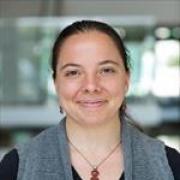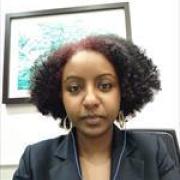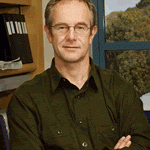Faculty in Virology and Microbial Pathogenesis are intrigued by how microbes manipulate their multi-cellular hosts to cause disease. The resultant research programs provide an unprecedented opportunity to influence global health. World-wide, infectious diseases are the leading cause of death, with simple diarrheal illness, malaria, and TB leading the pack. These and other infectious diseases, including AIDS, are a major impediment to economic advancement in the third world. The identification of new pathogens, the re-emergence of old pathogens, and the increasing incidence of antibiotic resistance reflect the globalization of humanity and microbes. New as well as old pathogens can rapidly move great distances and establish footholds in new niches. Strategies for the prevention, treatment, and control of infectious diseases require fundamental bench research that takes advantages of rapid advances in genomics, proteomics, cell biology, and immunology. Our faculty are dedicated to the investigation of microbial biology and host-pathogen interactions.
UCSF has developed world-class research programs in Infectious Disease. Virology and Microbial Pathogenesis forms one of 8 thematic areas of graduate study in the BMS program. Faculty members affiliated with this thematic area of BMS include virologists, some of whom are affiliated with the Gladstone Institute of Virology & Immunology, and researchers involved in the study of bacterial, fungal, and protozoal pathogens, who are affiliated with the Microbial Pathogenesis and Host Defense Program (MPHD). The MPHD program takes graduate students largely through BMS or the PIBS program. The Virology and Microbial Pathogenesis subdivision of BMS is truly a multi-campus and multi-disciplinary program, with investigators at Parnassus, MB, SFGH, the VA hospital, and the Gladstone Institutes of Virology at MB. The core of the program includes (i) a weekly MPHD seminar series, with invited outside researchers who are national and international leaders in the field, along with research in progress talks and journal clubs (ii) the weekly Gladstone Institutes of Virology seminar series (iii) a yearly bay area-wide symposium (Bay Area Microbial Pathogenesis Symposium), and (iv) advanced level graduate student courses in The Molecular Mechanisms of Microbial Pathogenesis (Micro and Immunology 202/Cell Bio 202) and Virology. Each of these two courses is usually offered on an alternating basis every other year in the spring quarter. In addition, selective mini-courses that study unique aspects of virology or microbial pathogenesis in detail will be offered in the spring quarter.
External Links:
- Microbial Pathogenesis & Host Defense
- Gladstone Institute of Virology & Immunology
- UCSF Global Health Sciences
- Benioff Center for Microbiome Medicine
Participating Faculty
Pages
- « first
- ‹ previous
- 1
- 2
- 3
- 4











